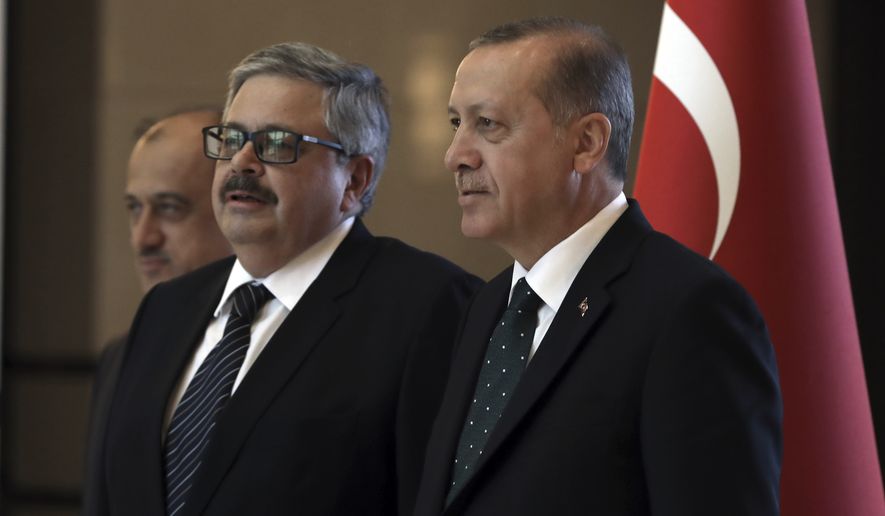Turkey’s decision to press forward with a multimillion dollar weapons deal with Russia is causing concern within the Pentagon, with U.S. defense officials concerned the Russian-made systems will harm American joint operations with the NATO ally.
Ankara and Moscow last month agreed to preliminary terms on the $2.5 billion deal for Russia to supply Turkey with four S-400 missile interceptor batteries over the next year. Under terms of the deal, Russian defense officials will deliver two of the four missile defense systems to Turkey via Russian defense firm Rosoboronexport.
The final two systems will be built inside Turkey, using parts and systems provided by the Russian military, according to recent reports. Pentagon officials maintain the cause for concern over Turkey’s decision does not lie with Russia. Rather, the use of Russian systems by a NATO ally could cause confusion between Ankara and alliance members on the battlefield.
“Our only concern about it is one of interoperability. Turkey is a NATO ally and generally speaking it is a good idea for allies to buy interoperable equipment,” Pentagon spokesman Capt. Jeff Davis said Monday. Most NATO allied field American or western European-made weapon systems. Further, a majority of the alliances’ forces are not trained on operating Russian-made heavy weapons systems, such as the S-400.
“What’s being reported here is obviously not interoperable and that obviously is a concern, but it is a Turkish decision,” Capt. Davis told reporters at the Pentagon, referring to the S-400 system. Turkey had attempted to secure a deal to buy Chinese-made missile interceptors in 2016 but balked at the deal amid pressure from NATO and the U.S.
Ankara’s decision to forgo similar U.S-made systems, such as the Terminal High-Altitude Air Defense system or THAAD, in favor of the S-400 is only the latest example of Turkey looking outside Washington for military support. Washington and Ankara remain at odds over the Pentagon’s decision to back ethnic Kurdish fighters in Syria and Iraq battling the Islamic State. Turkey considers certain elements of those Kurdish militias as members of terrorist organizations, responsible for numerous attacks against Turkish forces.
• Carlo Muñoz can be reached at cmunoz@washingtontimes.com.




Please read our comment policy before commenting.